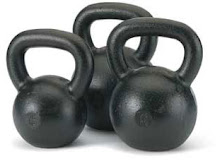I Am a Runner. Why Do I Need Strength Training?
Resistance or strength training is the Rodney Dangerfield of the running world: it gets no respect. I'm amazed that distance runners still believe the following:
- They do not need to resistance-train at all, at least "not for my legs."
- Resistance training will build big muscles and slow them down and ruin their form.
- If they perform weight training, it should be with light weights and high repetitions.
- Weight training should be done with machines.
Over the past two decades there have been dozens of studies showing the benefits of resistance training for runners in the areas of injury prevention and performance. There is no debate on this question. Resistance training will most certainly not build "big muscles" since most distance runners are ectomorphs, and no matter how hard they train with weights they will not build big muscles. Resistance training will improve your form and increase your speed by improving localized muscular endurance and nervous-system efficiency.
As for training with light weights and high reps, that went out with Jane Fonda workout tapes. Of course any beginner must use light weights while developing proper technique, but with experience it becomes readily apparent that not all reps are created equal. In order to increase strength (which is a good thing) you must apply gradual progressive resistance, which means heavier weights. Are you trying to set a world weight-lifting record? No, but getting stronger allows your muscles and tendons work more efficiently, making your gait more relaxed and "springy."
Finally, machines in no way compare with free weights, especially kettlebells. When was the last time you were seated in a fixed plane of motion while you were running? Running, and all movement in life for that matter, occurs in a 360 sphere. Machines turn you into what a well-known sports coach calls a "motor moron." They groove improper movement patterns that will ruin your running gait and lead to injury.
What Makes a Kettlebell So Special?
The design of the kettlebell differs from that of a dumbbell. With dumbbells the weight is evenly distributed over your hand. When using a kettlebell, there is constant pulling on your core (the muscles from shoulder blades down to your buttocks) for several reasons:
- Many exercises involve swinging the kettlebell which requires tremendous core strength to keep your body stationary.
- When you grasp the kettlebell by the handle, the center of mass or ball of the kettlebell is offset or slightly to the side. Pressing the kettlebell or holding it overhead causes a strong activation of your core to keep your body stable and tight.
Most of us who work out in the gym are used to isolating muscles. This is a bodybuilding technique bit it is not an effective way for a runner, or any athlete, to train. With kettlebells you use your buttocks, legs, abs, back, and arms-all at the same time. Kettlebells are a great time saver!
Kettlebells will strengthen the "weak" areas of your body. As a chiropractor and sports performance coach for over 20 years, I have seen the same problems over and over again-poor core strength, and a misunderstanding of how the core works and how to strengthen it. Kettlebell training is nothing short of phenomenal at addressing these issues. I have been training with kettlebells for five years and using them to rehabilitate injured patients for almost two years. Kettlebell rehab works wonders for lower-back, hip, knee, and shoulder problems.
Kettlebells can be used anywhere and require very little space. A few kettlebells make a complete gym. There are so many different exercises you can do that boredom will never be a problem. The price of a kettlebell is very reasonable considering that it will last a lifetime. You can't wear them out!
If you want to increase your sprinting speed, then kettlebells are the answer. As far as aerobic conditioning, try swinging a kettlebell for several minutes and see how long you last. Like any new exercise, proper instruction is required for safety and technique.
Monday, November 30, 2009
Subscribe to:
Post Comments (Atom)



No comments:
Post a Comment